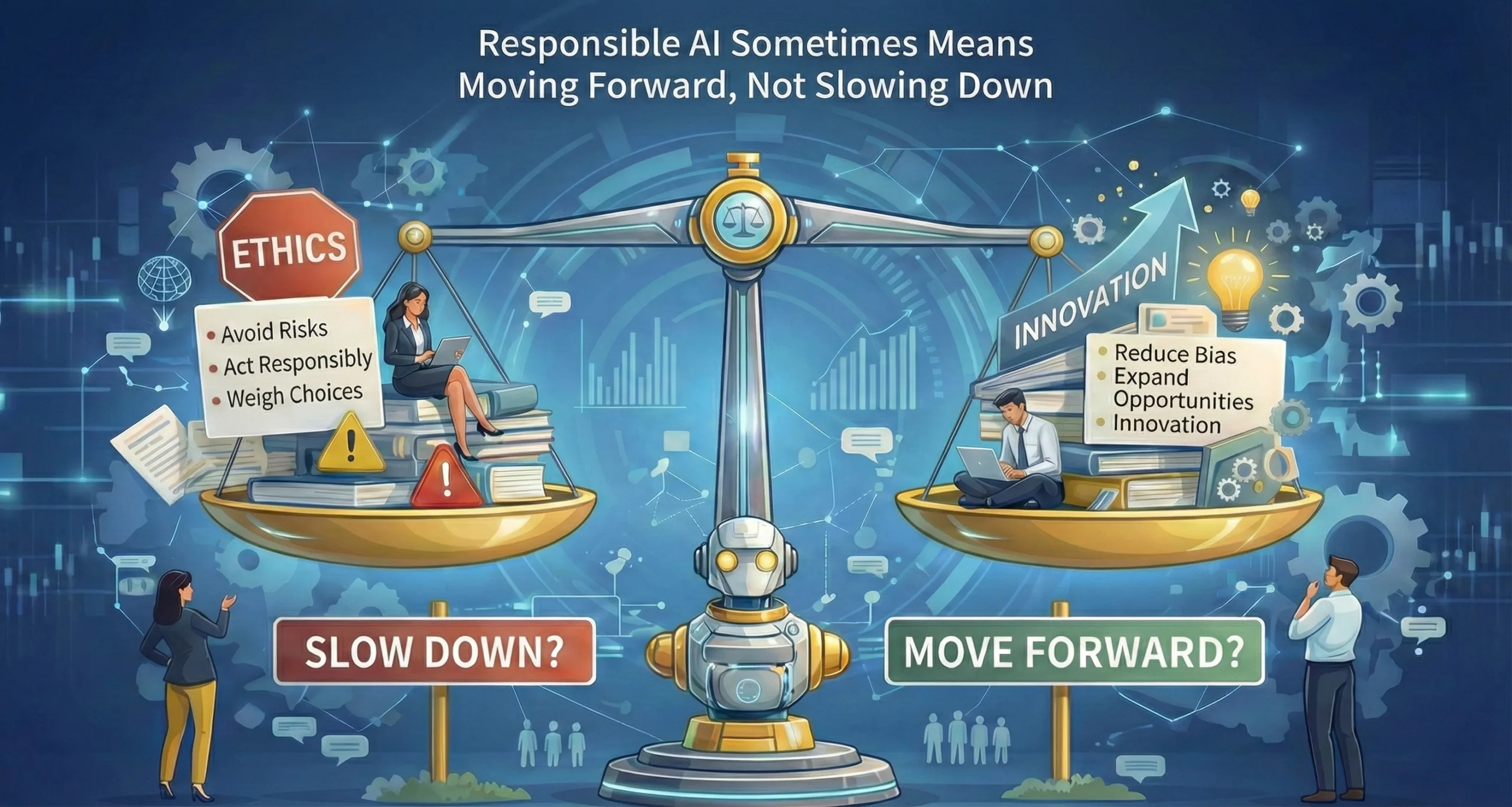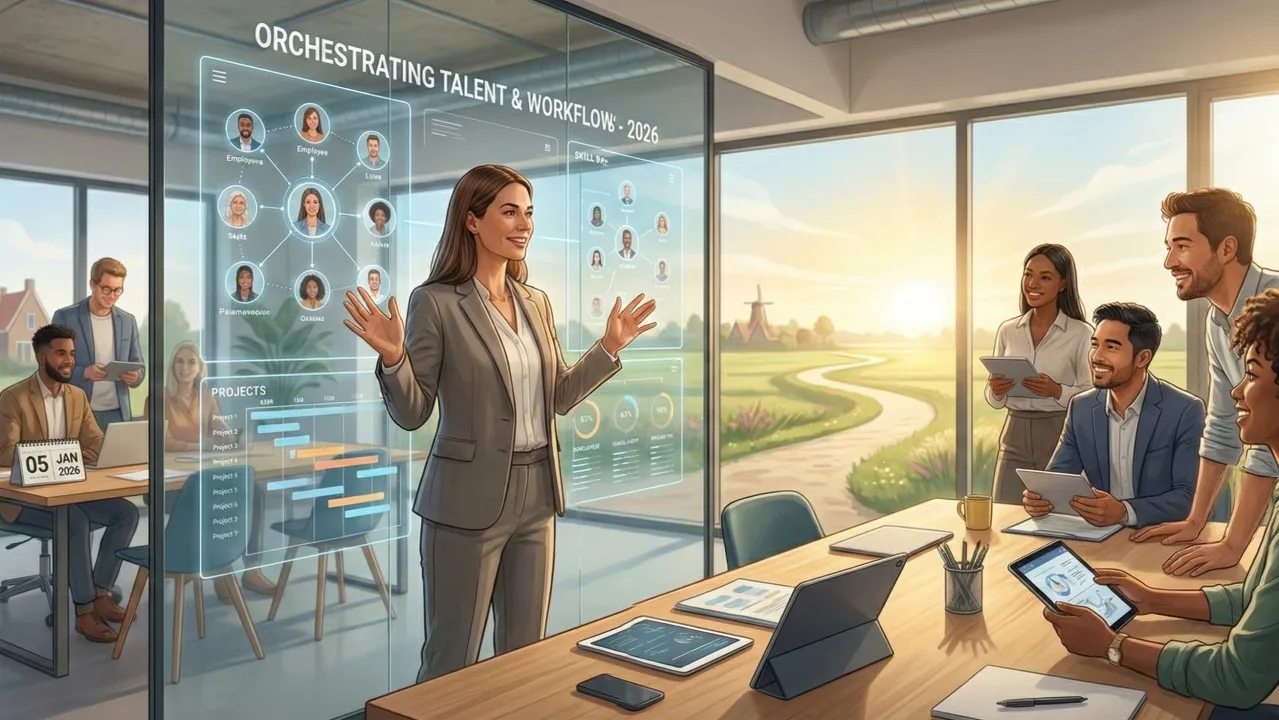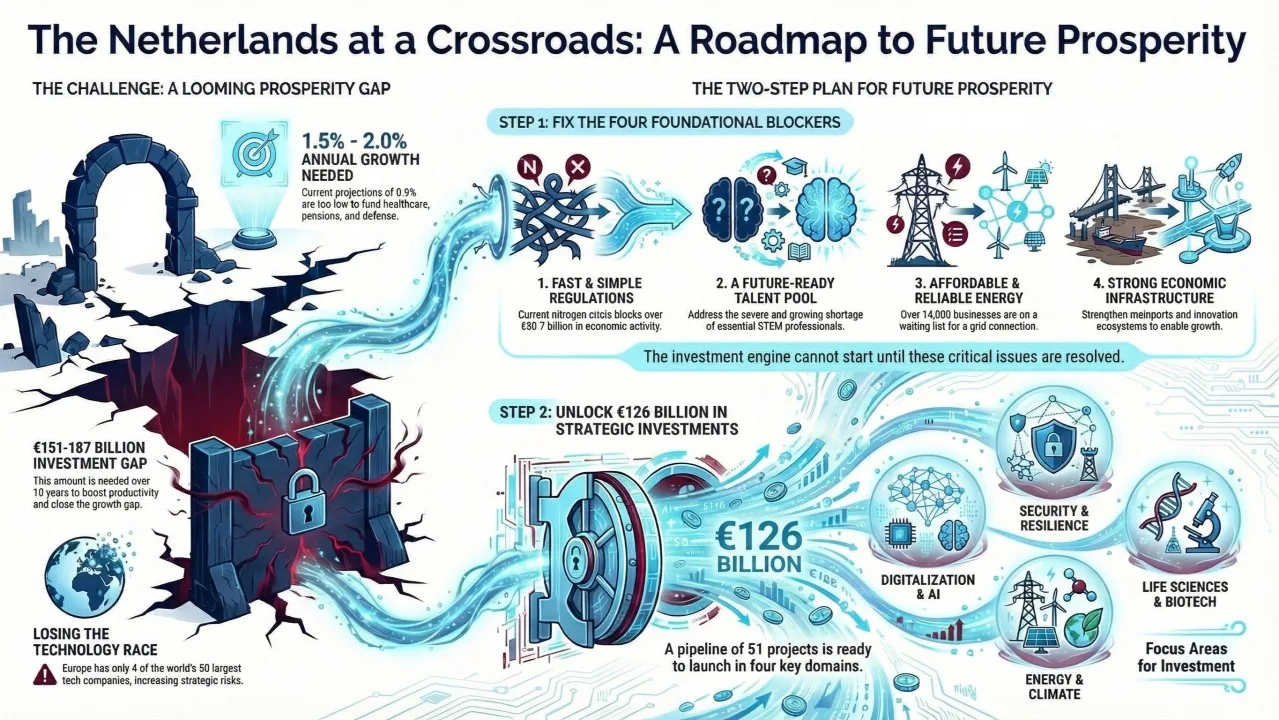A cattle farmer as a bricklayer. A sailor with an aptitude for basic cooking. And a front-end developer who can be deployed in infrastructure projects on the railway. AI surprisingly well predicts the (soft) skills, personalities, and ambitions that allow you to switch between professions. So stop with those assessments, send your recruiter to a training course, and let your recruitment be handled by algorithms. I predict that AI will greatly help in meaningfully deploying stuck and unused talent. Are you also motivated to place everyone in the right position and curious about how AI can help with this? I’m super curious about what you think of this blog!
Explanatory Text for Publication on LinkedIn
Explanatory Text for Publication on LinkedIn
The limiting factor in the major ecological and societal transitions is the lack of personnel. At least, if you go by the many open vacancies and the analyses of labor market economists. What they do not show, however, is the enormous amount of untapped potential in society. I see this mainly in two groups. First, employees who are ‘trapped’ in a job where they underperform. And secondly, job seekers who are excluded from the labor market but have skills that are perfectly usable in a task-oriented way. Additionally, there’s a third group that simply goes to work every day and feels they are contributing meaningfully, but when you look differently, you see that they are stuck in ways of working that could be much more effective. Who is going to liberate all this talent and deploy it meaningfully? Artificial Intelligence!
To understand how AI does this, you need to look at how jobs are structured: they consist of tasks and responsibilities. You need skills to perform these. It turns out there’s a lot of overlap in the tasks between various professions. See the figures below from Nedelkoska, Diodato, and Nefke (2018). This means that people are much more suitable for other jobs than they themselves think, simply because they already possess the skills or can quickly learn them based on generic skills. AI will help you find out what you (probably) can do, what you need for a particular job, and how you can get there. To make the potential of this clear, I’ll first zoom in on the meaningless work and the tasks that could be better performed by someone else or AI.
Eliminating Bullshit Jobs with AI
Earlier, I wrote about the growing group of organizations and jobs where their contribution to a better world is hard to explain. Unfortunately, it applies to many workers that they are simply happy to have a job and cannot (or do not) reflect on whether their ‘footprint’ is positive or negative for our planet. Additionally, there are the golden cages (or silver or bronze). You earn so much that making a switch would set you back, and you don’t want to change your standard of living.
Fortunately, these are also the jobs where fewer people will be needed soon. Take, for example, the work of a recruiter: collecting vacancies, writing content, creating campaigns, interviewing candidates, making matches, and making offers. Mostly ‘bullshit tasks,’ now that employers with smart software can directly see who is the best match. Sending personalized invitations or closing contracts can be done with a click. AI replaces—now or in the future—most software programmers, lawyers, marketing employees, and managers. There is already much written about how AI recruits better, writes better code, constructs better legal arguments, creates better content, and provides better steering information. I won’t go into that further here, and I also realize that ‘socially intelligent’ human work remains necessary to decide whether or not to implement what AI proposes.
Discovering Hidden Skills Deployable Elsewhere
Where I want to go with this argument is the ability of AI to point people to their hidden potential—skills, ambitions, and possibilities they weren’t aware of. If you ask people what they’re good at or what makes them happy, they can often only name about 20% of their ‘skills.’ If you then ask AI what skills someone with a similar profile also has, you’ll get all sorts of surprising suggestions. Click, click, click, and your profile is greatly enriched. I am fortunate to work with an R&D team that delves daily into the question of how we match people and work across the entire (international) labor market. 8vance has developed and implemented 39 algorithms that together surprisingly accurately predict what you’re good at and where you could work. There’s a good chance you’ll be surprised by the possible career leap.
AI Knows Your Personality and Allergies
Using a few examples, I want to illustrate how this works. Suppose you’re a mover. Leaving aside various other variables you can provide, such as your experience, education, and ambition, AI knows that people with this type of job generally score high on the R and C in the well-known Holland Code personality tests (RIASEC) with 80% certainty. They are realistic people who like practical (outdoor) work where they have to work with their hands (R). And conventional people with a preference for rules during their work (C).
Let’s use another model, like the Myers-Briggs Type Indicator (MBTI). Statistically, people in this function typically score ISFJ and ISTJ. You can read about this: “The usually quiet ISFJ will do everything to fulfill their obligations. In this, this MBTI type works carefully. The ISFJ is very loyal and observant. In short, a stable factor in any group.”
Before we match these personalities with other professions, we pull another interesting trick. We look at the lowest scores from the test. This reveals someone’s allergies. It turns out these are essential in matching work. Especially avoid work that falls into your allergy zone! In this case, ‘movers’ have the type ‘debater’ (ENTP) as an allergy according to MBTI. So you shouldn’t ask them to play the devil’s advocate and should steer clear of professions where they have to be curious in seeking new knowledge, such as journalism or law.
Matching on Ambition and ‘Transferable Skills’
In addition to personality, AI can also predict what someone ‘wants to become later.’ By analyzing millions of profiles, the next career steps can be predicted quite accurately and correlated with dozens of data points in a profile. AI can do the same with skills, a modern word for someone’s areas of knowledge, abilities, and competencies plus the ability to apply them. AI predicts someone’s hard skills (that’s often quite logical: a carpenter can carpent) and soft skills. The latter is more difficult (a cook is often communicatively skilled and socially inclined), but these skills are more ‘transferable’ to other professions. Network operators like Alliander can’t find charging station technicians, but based on soft skills, they find people in a bakery who can also ‘follow protocols’ and ‘work in detail.’ They can now approach new target groups and mobilize lateral entrants.
Alternatives for the Mover
Back to the mover. Curious about what AI calculates when we match 63,000 professions, taking into account personalities, ambitions, and transferable skills? Here’s the top 10:
- Animal ambulance driver
- Crane operator (port)
- Shellfish fisherman
- Shunter
- Assistant driver
- Inland navigation sailor, hydraulic engineering
- Forklift driver
- Sailor-engine driver inland navigation
- Mail carrier, Postman
- Employee at animal crematorium/animal cemetery
Which recruiter would have come up with these suggestions? And all that without someone having to fill in an assessment!
Just for Fun 🤣 AI-generated images by Midjourney about moving and animal ambulance…
Suggestions for Someone with the Side Job of Dog Walker
Okay. Let’s do another one. Suppose you have the side job of dog walker. Statistics teach us that you then have a high chance of scoring C, R, and E in Holland Code and ESTJ/ESFJ as the highest profiles in MBTI. You have ENFP (Extraverted, Intuitive, Feeling, and Perceiving) in your allergy. We run the test, and here are the proposals:
- Stable worker
- Shepherd
- Green space worker (parks and gardens)
- Agricultural seasonal worker
- Cemetery caretaker
- Animal caretaker
- Demolition worker in construction
- Bricklayer
- Loader/unloader rail, road, and air freight, Dockworker
- Loader, Dockworker
It may seem logical, but you’re not going to tell me that someone would have thought of these possibilities themselves. Interested in the top 100 suggestions from AI for your profession? Let me know.
Snapshot (Beta) from large-scale research by the R&D team (8vance and JobLiebe)
Liberating Talent with AI
That brings me to the essence of this plea. If we start using AI on a large scale to give people suggestions for suitable other work, I’m convinced that people will choose more enjoyable, educational, and meaningful jobs—work that matters more. Of course, suggestions for work are just the first step. You also want to actually see which companies and vacancies match you in your area, what contract forms are possible, and what training opportunities exist to bridge the ‘gap’ to desired work. Additionally, we have a collective challenge to make our societal systems more flexible and softer, so that more people dare to resign their contracts and take the leap to other work. We’re not there yet, but thanks to AI, we can now take a big step!
About Me as the Author
As Chief Evangelist, I am affiliated with 8vance, an AI tech company that predicts the match between people and work. My mission is to unlock the hidden capacity in our society. Liberating talent; whether they realize they’re stuck or not 😉. I enjoy pointing out possibilities to people on an individual level and coaching them towards a breakthrough where they risk everything to do the right thing. I love connecting innovators: “You are not alone. If you look differently, you’ll see that the movement you want is already being made.” And finally, I smile in the mirror when I play ‘crowd-organizer’ again; someone who thinks they can orchestrate societal change. Obviously naive, but I still believe it. It won’t go according to a planned script; I think I see which way it’s going. I quickly turn developments into opportunities and believe that I can make a difference with my voice and actions.




Leave a Reply